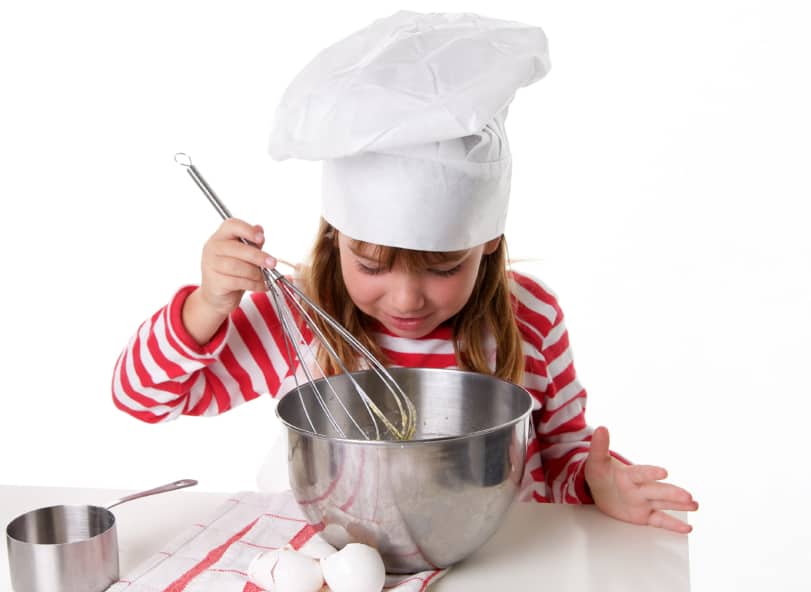Every teacher I talk to stresses the importance of kids keeping up with the school basics over the summer. When kids take a total break from learning for more than two months, they often lose ground by the time the new school year starts. Students need several weeks of refreshers before moving on to new, more advanced concepts—sort of a “use it or lose it” philosophy.
While I’m a firm believer in summer downtime for kids, I can appreciate where teachers are coming from. I think this issue presents us with the perfect opportunity to use wonderfully simple, everyday life skills that can add a fun flare to summer learning. For example, cooking is a life skill that won’t go to waste and will keep your kids up on those basic three Rs of the ol’ school curriculum: reading, writing, and arithmetic.
- Reading. When food is the subject at hand, one of the things I talk with my kids about is the importance of nutrients. Why do we need iron? What foods give our bodies calcium when we avoid dairy products? And why do I keep insisting that they try broccoli? Together, we take time out to seek the answers to these questions. (A great place to start is at the SRP Historical Archives.) We also look through cookbooks and online recipes to decide on our meals and snacks for the week, and come up with ideas for specific ingredients we pick up at the farmer’s market.
- Writing. For our youngest, writing out the grocery list or the weekly menu means he gets great practice at neat penmanship. After all, he needs to make sure others can read it. Our middle son likes to create smoothies using ingredients he comes up with off the top of his head. When the result is especially tasty, we encourage him to write down the recipe. The same goes for our oldest with salsa and guacamole. He likes to add his own twist to these favorites, so we always have a pen close by for him to note what worked (and what didn’t). That way, he doesn’t have to remember next time.
- Arithmetic. From understanding the concept of fractions with measuring cups to knowing the difference between a teaspoon and a tablespoon, a lot of math goes on in cooking. But a lesson in arithmetic can be as subtle as tasting some fresh garlic and asking your child how the flavor of the dish would change if you used ten cloves instead of two. Or you can have your kid identify the fractions in a homemade pizza. You can pour a teaspoon of salt next to a tablespoon of salt and talk about the difference, or you can explore how many ounces are in a pound, how many ¼ cups it takes to make a full cup, and how many pints are in a quart.
- Science. Consider this a bonus round. Sure, science doesn’t start with an “R,” but that doesn’t mean your kids can’t learn about science concepts while cooking. Encourage your kids to think about the different interactions certain ingredients have on one another, like how baking soda affects their favorite cookies. Let them scoop one ball of cookie dough onto the pan before you add the baking soda. When the cookies are finished, compare it to the rest of the batch. Or examine how the right temperature of water and raw honey makes yeast bloom. Put some yeast into a bowl of cold or boiling water and ask your child how it compares to the perfectly combined batch of yeast you used to make hamburger buns.
Cooking isn’t the only life skill that involves concepts from school, but it’s one of the most versatile—and you get yummy snacks in the end. How do you keep your kids on top of the three Rs over the summer, without them even realizing they’re learning?
Photo from iStock/3bugsmom



